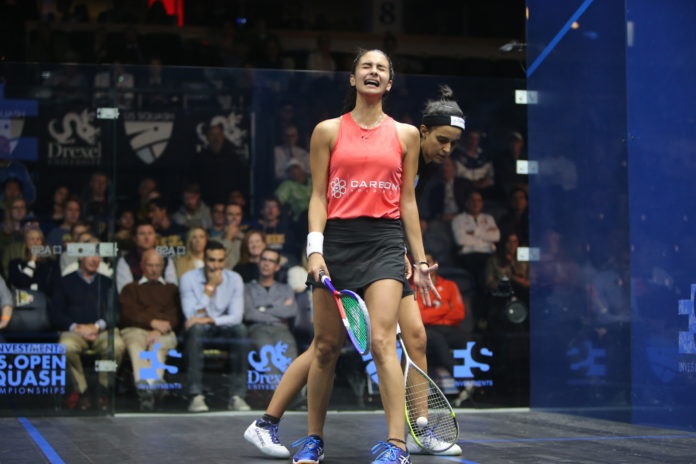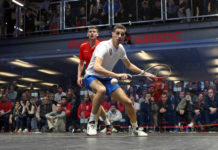by Richard Millman
If you are an enthusiastic squash player, you probably play competitive matches, train, practice and take lessons. That’s a pretty normal diet for a squash enthusiast. Yet you may find that you feel you are standing still, plateaued or making limited progress. This too is a common trait.
All too frequently I hear comments from players along these lines: “Coach, I understand what you are talking about and it makes sense. And I really enjoy it when we are working on my game. But I know I will forget everything in a couple of weeks if you aren’t here to remind me.”
About a month ago, I read the 2016 book Peak: Secrets from the New Science of Expertise by Anders Ericsson and Robert Pool. It really spoke to me in a way that has seldom happened before. Over the course of forty years, Ericsson has empirically and scientifically studied elite performance, and he and Pool have defined the precise combination of behaviors that lead to elite performance. After reading the book, I had a stroke of immense good fortune. One of my clients is acquainted with a dear friend of Ericsson and offered to see if he would make an introduction. I suddenly found myself, after a whirlwind of correspondence, spending the day with Ericsson.
Ericsson spoke about Ben Franklin and how he learned chess and writing. Franklin sought out the best chess players of the age and regularly played with them. Sadly, he didn’t improve at chess. Franklin also wanted to be a great writer. His approach to improving his writing was very different to his approach to improving his chess. He took sample paragraphs of the writers he most admired and designed some deliberate practices. He would memorize a paragraph and then rewrite it from memory; he took all the words from a favorite paragraph, jumbled them up and then tried to rearrange them in the order that he had originally admired them. He then tried to write his own paragraph.
Franklin was deliberate: breaking down what it was that he wanted to achieve, working out how to methodically get there and then spending considerable periods of time to achieve his goal. He also got continuous expert feedback by comparing his method and mechanics to the great writers of his age. With chess, he never broke it down. He never asked the great players to guide him and make corrections. He never got expert feedback.
Ericsson and I discussed the learning process in squash. Ericsson was fascinated to hear about the nuts and bolts of training. For him, the key was.learning what squash players thought during their performance. Once we know that, we can design deliberate practices and supply more precise mental representations. (The student must also have access to expert coaching to develop through the process of immediate feedback.) But first we need to know what the player is thinking while performing. Unfortunately, this can be difficult to ascertain, because most people turn away in disgust immediately after they make an error instead of seizing the valuable opportunity to analyze and identify where the mental representation went astray and to identify the correction required.
If we don’t know what the student is thinking, they are like Franklin in his chess. The same errors are made over and over because the process is not broken down, mental representation by mental representation, so that those ideas can be corrected. Ten thousand hours of repetition actually achieves nothing other than 10,000 hours of repeated errors.
If you would like to improve your own performance, here is a simple procedure that will get you on the way:
- Video a competitive match.
- Have a recording device handy. After each game and after the match, record what you were thinking throughout the game. Not what you think you ought to have been thinking, but simply what it was that you were thinking.
- Later, listen to the recordings and then watch each game. After completing that process, write down any surprising disparities between your recorded thinking during and right after the match and your feelings after later watching the video. I think you will find it a fascinating, informative and useful exercise.





